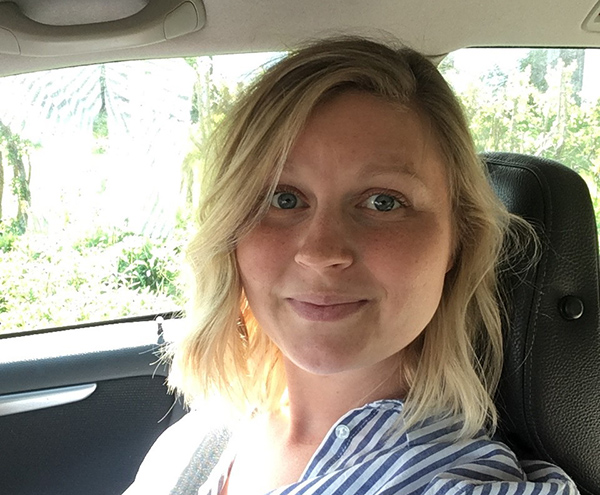
|
Crime and punishment generates a lot of interest. This is shown not least by the high number of applicants for Lunds University’s popular Cultural Criminology programme in which students discuss issues such as: Is criminality a life style? How does the prison service operate and what is the interplay between social norms and legal rules? Alumna Sara Blomqvist, who earned her degree in 2013 and could consequently start using the title of criminologist, is now a criminal investigator for the Law Enforcement Division of Swedish Customs.
Describe a normal day at work.
-On a normal Monday as a criminal investigator for the Swedish Customs Law Enforcement Division I may find that a new case has come in over the weekend and been assigned to me. I start by reading up on what has brought about the preliminary investigation. It may concern anything from a lorry carrying smuggled spirits being caught on the Trelleborg ferry to a car carrying 200 grams of cocaine having crossed the Öresund Bridge. The crimes we investigate solely concern cross-border criminality, such as illegal importation of some kind into our country. I then read through the interviews of the suspects and go through the confiscations to get a picture of the existing evidence.
How does a case come to your attention?
-It’s the border protection service of Swedish Customs that usually finds illegal goods and carries out initial measures such as seizing narcotics or other potential evidence. They apprehend and interview suspects and make the initial contact with the prosecutor in cases where it is considered that the suspect needs to be taken into custody. Once the prosecutor has taken a decision to arrest, the suspects are transported to the cells and the case is handed over to us at the Law Enforcement Division for further investigation.
Describe your role as a criminal investigator.
-The investigator’s role, following a directive from the prosecutor, is to ensure that the investigation is robust enough to withstand a legal process. We hold exhaustive interviews with suspects and witnesses, analyse the content of mobile phones and other electronic communication such as text messages, emails, conversations and photos as well as track down information on the suspects on social media. We go through confiscated evidence such as hotel receipts, airline tickets, traces in the form of fingerprints or DNA found at the crime scene (usually in vehicles, on or close to narcotics or wrapping). This is done to build up a hypothesis about how the crime took place and will be examined in combination with interviews of the suspects and then be presented in court.”
It sounds very “CSI” to track down information about suspected persons on social media, and secure DNA traces and fingerprints. Is it as exciting as it sounds?
-It’s an extremely exciting job, which is perhaps mainly because the cases that the Law Enforcement Division work on are of import. There is a high requirement for an excellently performed investigation when it could involve so many years in prison. You must be aware of the gravity of the matter and maintain your objectivity. It’s not here in the investigation stage that we judge people – that is an issue for the courts to decide. The work is probably as exciting as it sounds, but as with any job it becomes less “sexy” over time. So it’s important to have a good team, to appreciate the best parts of the job, continue to be curious and try to develop in your role as an investigator. An investigator can’t, of course, know everything, but he or she should always have the attitude that finding out something is possible.
|
|